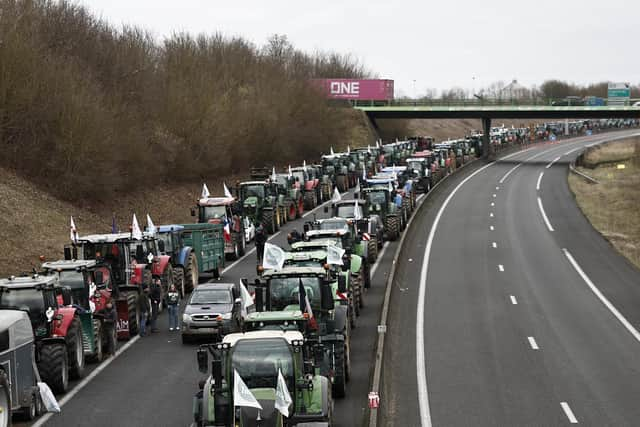Factors behind global farming protests are also at play in Yorkshire: Rashmi Dubé
I raised concerns as far back as 2021 in my article for The Yorkshire Post about the issues that could arise around new legislation and the impact things such as the Free Trade Agreements would have on British farming. For instance, can the UK compete against the US for cheap food or will the US flood the UK market?
Coupled with this, from 2017 onwards, some supermarkets had faced criticism for allegedly misleading customers by using the name of a genuine farm that they had no association with on the packaging of their own-brand products. In some instances, they were even accused of using totally fictious names. This is all in addition to the continuing issue farmers face around late payments. But this is not just a UK issue – globally, this is what farmers are facing today.
Advertisement
Hide AdAdvertisement
Hide AdLooking at the timeline of events, the supermarkets at home and across the pond in the USA had already been faced with a number of controversies, not only over the fake farms but also fraud around the contents of their meat products. Fast forward to September 2020 and Indian farmers began protesting against three new farming acts that were described by the Indian farmers’ union as “anti-farming”.


The protestors took to blocking the roads.
If this sounds familiar, let’s turn to the events of the last fortnight. Across Europe, tens of thousands of farmers have downed tools, mounted their tractors and taken to the streets. There are many grievances being echoed because of unsustainable policies.
Although a European Union issue, they are similar to the ones faced back home and those in India.
French farmers are echoing familiar global concerns around bureaucracy, the increasing cost of farm diesel, and competition from imports.
Advertisement
Hide AdAdvertisement
Hide Ad

There is a growing argument that digitalisation and the network of shared data could allow farmers to work in a larger framework. The view is that working in a more global and digitalised manner will allow farmers to enhance productivity and resilience to climatic events, and enable the development of less environmentally harmful plant protection chemicals, making this a more sustainable way forward.
Whether this will ever come to fruition is another question. The work involved around the legislation, tariffs, and quotas would be great.
The warning of a global uprising of farmers was made in May 2022, when the issue of world hunger was hitting an all-time high according to UN chief António Guterres. He warned that “climate change, the Covid-19 pandemic, and the Ukraine war has pushed the world to the brink of a global food crisis.”
Around this time, it was being reported that the farmer protests in various parts of the world such as Argentina, Tunisia, Cyprus and Indonesia were symptoms of this larger crisis. We’re now two years further on and no real change has occurred to help the farming community globally.
Advertisement
Hide AdAdvertisement
Hide AdI have no solutions that are ideal in the changing world of technology and environmental conditions, but what I do know is something needs to be done and it starts on a local level.
Rashmi Dubé is a partner at gunnercooke
Comment Guidelines
National World encourages reader discussion on our stories. User feedback, insights and back-and-forth exchanges add a rich layer of context to reporting. Please review our Community Guidelines before commenting.